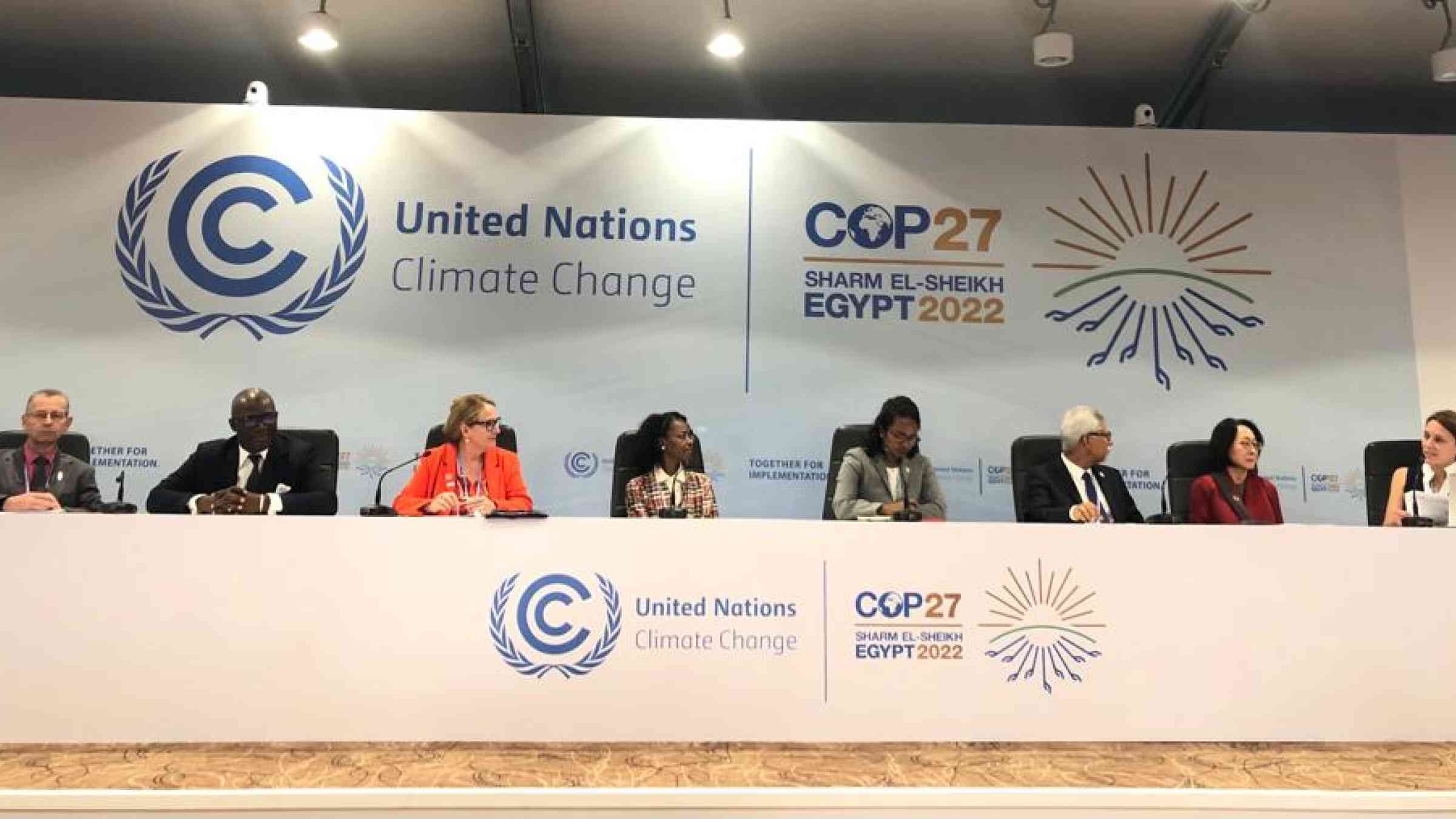UNDRR and WMO at COP27: Scaling-up Early Warning and Early Action through comprehensive disaster and climate risk management

Sharm El-Sheikh, 11 November 2022, Following the ambitious plan to achieve ‘Early Warnings for All’ in the next five years, the United Nations Office for Disaster Risk Reduction (UNDRR), partnering with the Risk-informed Early Action Partnership (REAP) and the World Meteorological Organization (WMO), hosted an event at COP27 under the title “Scaling-up Early Warning and Early Action through Comprehensive Disaster and Climate Risk Management.” The event came to focus on enabling factors, including integrated disaster risk reduction and climate action that will make this vision a reality.
The ‘Early Warnings for All’ plan requires an all-out effort by multiple actors, stakeholders, and institutions, as such a comprehensive disaster and climate risk management approach sets the policy basis for joint and shared responsibilities, including stronger linkages between institutions and planning processes.
The event came to address the challenges facing the developing vulnerable countries, like the small island developing States in addressing the climatic impacts and building future resilience, and coordination at the national level to address the challenges. The discussion tackled how a shared understanding of risk can inform coherent implementation, including early warning systems, and how an integrated disaster and climate risk management policy basis can help countries better manage climatic risks and strengthen early warning systems.
The panel discussion saw the participation of Jagan Chapagain, International Federation of Red Cross and Red Crescent Societies Secretary-General, Aminath Shauna, Maldives Minister of Environment, Climate Change, and Technology, Ibrahima Cheikh Diong, UN Assistant Secretary-General and African Risk Capacity Group Director General, Arlene Laing, Caribbean Meteorological Organization Coordinating Director, Ingrid Hoven, GIZ Managing Director, Johan Stander, WMO Director of Services, and was moderated by Lisa Robinson, Head of Advisory & Policy at BBC Media Action.
“It is not a technical issue, and our conversation should be simplified. Resources are not at the same scale as disasters, we need to find a different way to prevent rather than respond that keeps communities at the forefront,” IFRC Secretary-General Jagan Chapagain added. In her turn, Minister Aminath Shauna highlighted the challenge of coordination among the Maldives islands. “Investing in resilience is difficult due to the lack of data that can identify the vulnerable and most affected areas on islands,” Shauna stated.
“Unless we break the institutional silos and work as one community, we won’t be able to succeed. Early warning systems can save lives and reduce damages and we need to invest in them," Ingrid Hoven, GIZ Managing Director, added.
“Early Warnings for All initiative is a lifetime opportunity and failure is not an option,” Johan Stander, WMO Director of Services, concluded. “We need to develop the right partnerships to be able to succeed."
With climate-related disasters displacing more people than conflict, UN Secretary-General António Guterres unveiled the details of ‘Early Warnings for All’ action plan, at COP27 in Sharm El-Sheikh, to ensure everyone on the planet is protected by early warning systems within the next five years. The plan calls for initial new targeted investments of $ 3.1 billion between 2023 and 2027, equivalent to a cost of just 50 cents per person per year. It identifies key areas for advancing universal disaster risk knowledge, outlining priority actions required to achieve this, and building on the Sendai Framework for Disaster Risk Reduction.
The Action Plan is a firm step in the right direction. Early warning systems are a pivotal component to moving towards a world with zero climate disasters by 2030, a UNDRR strategy, and comprehensive risk management is a key enabler to making this happen.
Is this page useful?
Yes No Report an issue on this pageThank you. If you have 2 minutes, we would benefit from additional feedback (link opens in a new window).